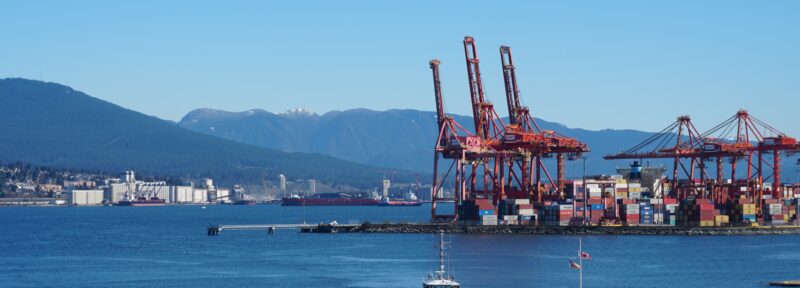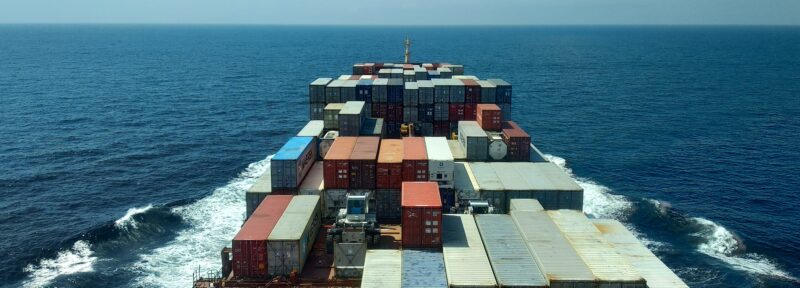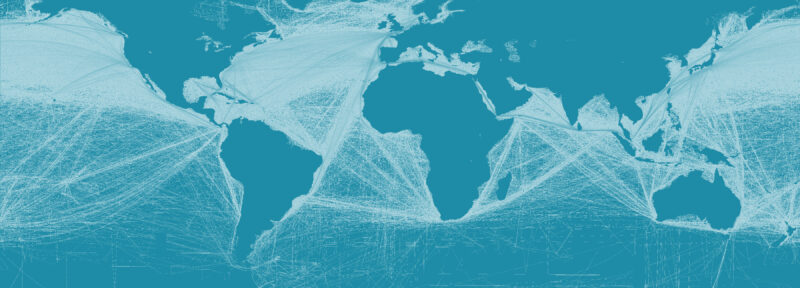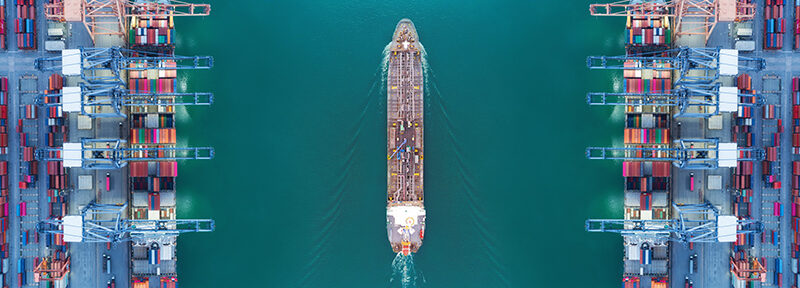Vancouver Event Aims to Connect Words with Action on Green Shipping Corridors
VANCOUVER—Oceans North, the Vancouver Maritime Centre for Climate, C40 Cities Climate Leadership Group, and Arup are hosting a multi-stakeholder workshop on New Energy Markets in West Coast Shipping today to link clean energy projects with the marine value chain and figure out how energy export projects can be leveraged to decarbonize ports, shipping and marine transportation.
“We’ve seen a number of exciting announcements on the development of green shipping corridors in Canada, which will be key to reducing emissions from the shipping industry and building markets for the fuels of the future,” says Brent Dancey, the Director of Marine Climate Action at Oceans North. “Now we need to turn these announcements into an on-the-water reality.”
Green shipping corridors are routes between one or more ports where vessels powered by low- and zero-emission energy sources can refuel. Cooperation across sectors and a willingness to advance new technologies and fuels will be crucial to their development.
“Commitment to meaningful, cross-value chain collaboration is fundamental to getting shipping on a decarbonization pathway to 1.5C,” says Alisa Kreynes, Head of Ports and Shipping at C40. “To make the urgent transition from fossil fuels in the shipping sector a reality, all key actors—including policymakers, ports, shipping companies, fuel producers, and cargo owners alike—must work together in an unprecedented way that breaks down political, geographic, regulatory, and administrative boundaries,” Kreynes says.
Participants will discuss how new large-scale clean energy projects can be leveraged to decarbonize ports, domestic shipping and marine transportation while scaling to supply bunker markets for international vessels. Research suggests Canada could become a major producer of zero-emission fuels such as hydrogen and ammonia because of our inexpensive, clean electricity, vast renewable energy resources and energy sector expertise.
“Canada has the potential to produce large quantities of green fuels in the very near future which can be used for both domestic and export needs,” says Andy Ralph, Associate Principal and Americas Hydrogen Leader at Arup. “This positions Canada to lead the world in the implementation of low carbon maritime fuels, and this forum is a big step in making that a reality,” he says.
A major challenge at this stage is to match the production of clean fuels with demand at competitive costs. “It’s a chicken-and-egg situation,” Dancey explains. “Shipping companies don’t want to switch to zero-emission fuels until they’re produced in reliable quantities at a competitive cost, while fuel producers need offtake agreements to derisk their investments.” The goals of today’s panel discussions are to bring in stakeholders from across the clean fuel supply chain and the broader ecosystem to find a path forward, as well as underscoring the role the maritime sector can play in facilitating the growth and trade of zero-emission fuels.
The event builds on the results of the Green Shipping Corridors Preliminary Assessment, a study from global sustainable development consultancy Arup in partnership with Lloyd’s Register (LR) Maritime Decarbonization Hub. The report, which was commissioned by Oceans North and the Vancouver Maritime Centre for Climate, looked at the ports of Vancouver, Prince Rupert, and Halifax in order to analyze the viability of green shipping corridors and their potential environmental and economic benefits.
“We know that green shipping corridors are key to decarbonizing the marine industry and that Canada has the potential to be a leader,” Dancey says. “What we need to find out is what the barriers are on the water—and how to overcome them.”
For more information or to arrange an interview, please contact:
Alex Tesar
Communications Manager
Oceans North
[email protected]




